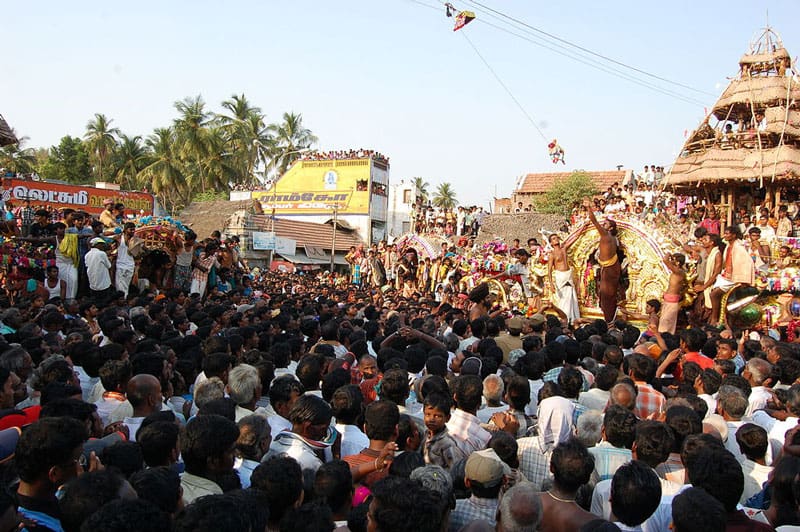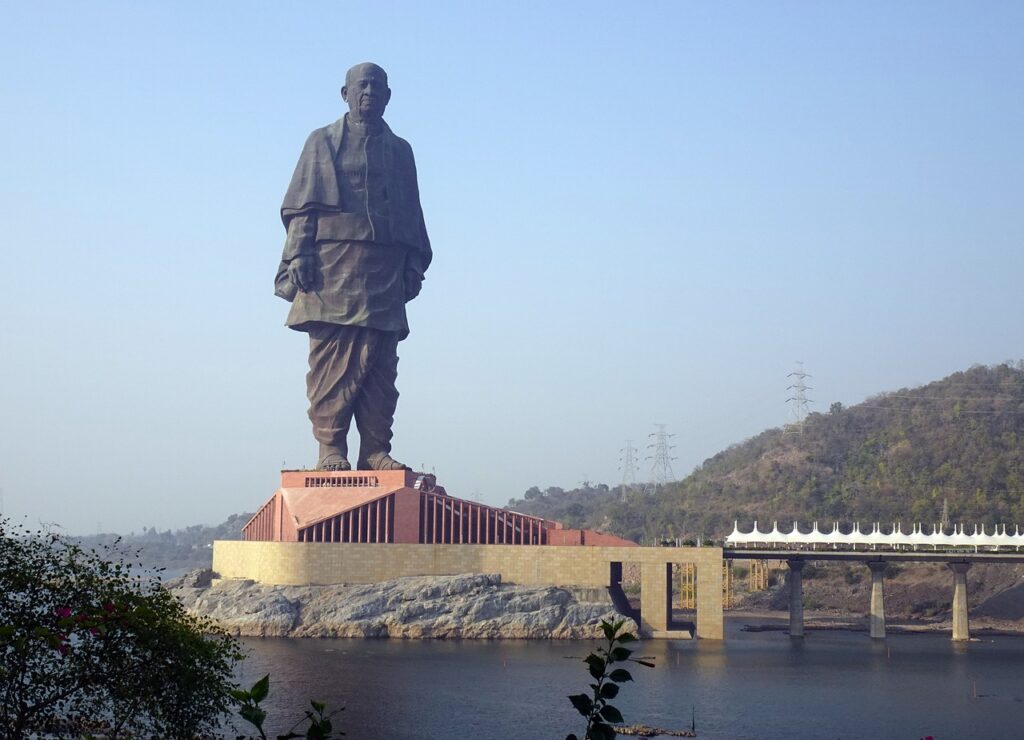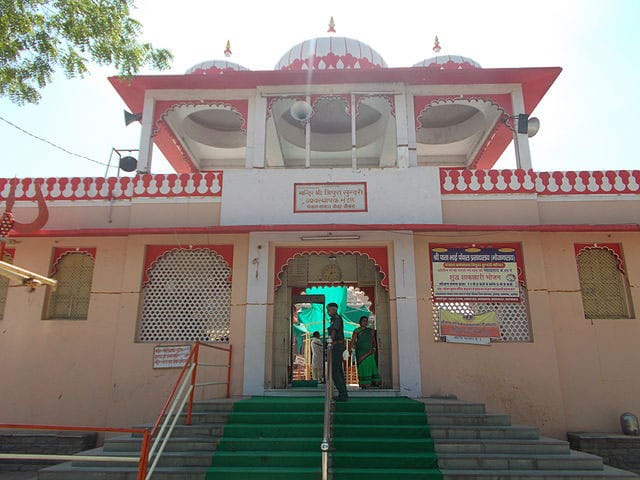Tamil Nadu, renowned for its rich cultural heritage and vibrant traditions, hosts an array of festivals throughout the year. These festivals offer a captivating glimpse into the state’s diverse customs, religious fervor, and artistic expressions. Let’s delve into the top seven festivals that showcase the cultural tapestry of Tamil Nadu.
1. Pongal: The Harvest Festival
Significance: Pongal holds immense significance in Tamil Nadu as it marks the beginning of the harvest season, typically falling in mid-January. The festival is a tribute to the sun god, Surya, expressing gratitude for a bountiful harvest.
Traditions and Customs: Pongal is celebrated over four days, each with its unique rituals. The first day, Bhogi Pongal, involves discarding old belongings and welcoming new ones. The second day, Thai Pongal, is the main day when freshly harvested rice is boiled in pots until it overflows, symbolizing abundance. Mattu Pongal, the third day, is dedicated to honoring cattle, particularly cows and bulls, for their contribution to agriculture. Kaanum Pongal, the final day, is when families gather for picnics and outings.
Best Places to Experience Pongal: While Pongal is celebrated throughout Tamil Nadu, certain regions offer particularly vibrant celebrations. Madurai, known for its grand Jallikattu (bull-taming) events, and Thanjavur, with its colorful village festivities, are among the top places to experience the essence of Pongal.
2. Tamil New Year (Puthandu)
Cultural Importance: Puthandu, also known as Varusha Pirappu or Tamil New Year, marks the beginning of the Tamil calendar year. Celebrated in mid-April, the festival symbolizes new beginnings, prosperity, and renewal of life.
Celebration Rituals: On Puthandu, families wake up to auspicious sights, such as the view of gold jewelry, fruits, and flowers, signifying prosperity. Homes are adorned with intricate kolam (rangoli) designs, and delicious traditional dishes like maanga pachadi (a special dish with different tastes) are prepared. Visiting temples to seek blessings, exchanging gifts and sweets, and spending time with loved ones are integral parts of the celebrations.
Popular Locations for New Year Celebrations: Chennai, the capital city, comes alive with colorful street processions, cultural programs, and special events during Puthandu. Kanchipuram, renowned for its temples and cultural heritage, and Tiruchirappalli, with its grand festivities, are also popular destinations to welcome the Tamil New Year.
3. Mahamaham Festival
Historical Background: Mahamaham, celebrated once every 12 years in the temple town of Kumbakonam, is one of Tamil Nadu’s largest religious gatherings. The festival derives its name from the auspicious day when the celestial waters of various holy rivers are said to converge in the Mahamaham tank.
Rituals and Activities: Devotees from across the country throng to Kumbakonam to take a dip in the Mahamaham tank, believing it to cleanse them of sins and bestow blessings. The festival also includes colorful processions of deities from neighboring temples, cultural performances, and religious discourses.
Notable Temples for Mahamaham: Kumbeswarar Temple, dedicated to Lord Shiva, is the focal point of Mahamaham festivities. Sarangapani Temple, dedicated to Lord Vishnu, and Nageswaraswamy Temple, dedicated to Lord Shiva, are also significant landmarks during the festival.
4. Natyanjali Dance Festival
Origin and Purpose: Natyanjali, held annually during Maha Shivaratri at the Nataraja Temple in Chidambaram, is a unique cultural event that pays homage to Lord Nataraja, the cosmic dancer. The festival celebrates the art of classical dance forms, particularly Bharatanatyam.
Participation and Performances: Renowned dancers, both professionals and amateurs, converge at the Nataraja Temple to offer dance performances as a gesture of devotion to Lord Shiva. The rhythmic movements, intricate footwork, and expressive gestures of Bharatanatyam captivate the audience and evoke a sense of spirituality.
Venue and Timing: The Nataraja Temple in Chidambaram provides a divine backdrop for the Natyanjali Festival, attracting art enthusiasts and devotees alike. The festival coincides with Maha Shivaratri, usually falling in February or March.
5. Karthigai Deepam
Mythological Significance: Karthigai Deepam, also known as the Festival of Lights, is celebrated to honor Lord Shiva and Lord Muruga. According to Hindu mythology, it commemorates the divine appearance of the celestial flame atop Mount Arunachala.
Lighting of Lamps and Bonfires: Homes, temples, and streets are illuminated with rows of oil lamps and decorative lights, creating a mesmerizing spectacle. Bonfires are lit atop hills, temples, and public spaces, symbolizing the divine light dispelling darkness and ignorance.
Famous Temples for Karthigai Deepam: Arunachaleswarar Temple in Tiruvannamalai is the epicenter of Karthigai Deepam celebrations, attracting devotees and tourists from far and wide. Thiruvannamalai Temple in Chennai also hosts grand festivities during the auspicious occasion.
6. Thaipusam
Religious Observance: Thaipusam, dedicated to Lord Muruga, is celebrated by Tamil Hindus as a symbol of faith, devotion, and penance. The festival commemorates the occasion when Goddess Parvati gifted Lord Muruga a divine spear to vanquish the demon Soorapadman.
Piercing Rituals: Devotees undertake acts of self-mortification, such as carrying kavadis (burdens) adorned with sharp hooks and spears pierced through their flesh, as an expression of their devotion and gratitude towards Lord Muruga. The piercing rituals symbolize the devotees’ willingness to endure pain and hardship for spiritual fulfillment.
Major Thaipusam Celebrations: Palani Murugan Temple in Palani, Batu Caves in Malaysia, and Thiruchendur Murugan Temple in Tamil Nadu are renowned for their grand Thaipusam processions and fervent devotee participation.
7. Chithirai Festival
Historical Background: Chithirai Festival, celebrated in Madurai, commemorates the divine wedding of Lord Sundareswarar (Lord Shiva) and Goddess Meenakshi, the presiding deities of the Meenakshi Amman Temple.
Processions and Events: The highlight of the Chithirai Festival is the grand celestial wedding ceremony of Lord Sundareswarar and Goddess Meenakshi, reenacted with pomp and splendor. The deities are adorned in magnificent attire and taken on elaborately decorated chariots, accompanied by devotional music and dance performances.
Highlighted Chithirai Celebrations: Meenakshi Amman Temple in Madurai is the focal point of Chithirai Festival celebrations, attracting thousands of devotees and tourists to witness the majestic chariot procession and cultural extravaganza.
Conclusion
The festivals of Tamil Nadu offer a unique blend of spirituality, tradition, and cultural splendor. From the joyous harvest festivities of Pongal to the mesmerizing dance tributes at Natyanjali, each celebration is steeped in rich heritage and fervent devotion. Exploring these festivals provides an enriching experience, offering insights into the vibrant tapestry of Tamil Nadu’s cultural landscape.
FAQs
- When is the best time to visit Tamil Nadu for experiencing these festivals?
- The ideal time to visit Tamil Nadu for festivals is during Pongal in January or during the spring season, which coincides with Tamil New Year celebrations in April.
- Are these festivals open to tourists from other states and countries?
- Yes, these festivals are open to all, and tourists are welcome to participate in the celebrations and immerse themselves in the cultural extravaganza.
- Are there any specific dress codes or etiquettes to follow during these festivals?
- While there are no strict dress codes, it is advisable to dress modestly and respectfully, especially when visiting temples or participating in religious rituals.
- Can I witness traditional performances and cultural events during these festivals?
- Absolutely! These festivals showcase a variety of cultural performances, including folk dances, music concerts, and traditional rituals, offering visitors a glimpse into Tamil Nadu’s rich artistic heritage.
- Are there any local delicacies or special dishes associated with these festivals?
- Yes, each festival has its own set of traditional dishes and delicacies. Don’t miss the opportunity to savor mouthwatering treats like Pongal, Sakkarai Pongal, and Murukku during your visit.












